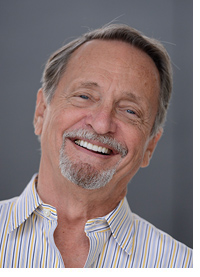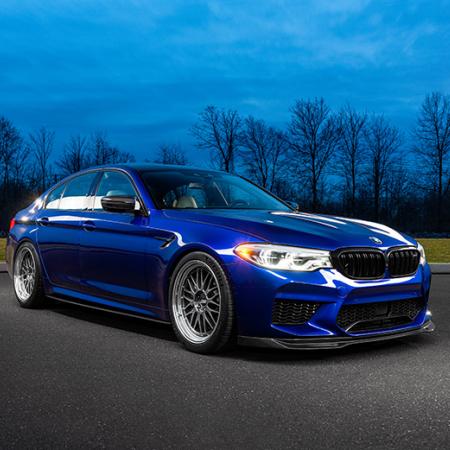 I must say that the last few weeks of Formula 1 racing, especially the races in Azerbaijan and Silverstone, have interrupted my Sunday work schedule. Unlike fanatical fans of Formula 1 racing, I do not get up at Oh-Dark-Thirty to watch the races live; instead, I record the qualifying sessions and the races so that I can skip ahead through the boring parts.
I must say that the last few weeks of Formula 1 racing, especially the races in Azerbaijan and Silverstone, have interrupted my Sunday work schedule. Unlike fanatical fans of Formula 1 racing, I do not get up at Oh-Dark-Thirty to watch the races live; instead, I record the qualifying sessions and the races so that I can skip ahead through the boring parts.
This means that I can watch the qualifying sessions in about ten minutes flat.
A Formula 1 race is regulated to two hours, so for several years I have been able to watch most races in about 30 minutes, clicking twice on the fast-forward button and returning to normal speed only when I see the word REPLAY in the upper left corner of the screen; this indicates that something has happened to interrupt the single-file parade of guttural F1 cars wandering around on that endless road to nowhere. And at fast-forward speeds, the sound is muted; this has two advantages. One, I don’t have to listen to the current engine formula, which calls for a 1.6-liter turbocharged V6; I still say the damn thing sounds like a Chevrolet 348 truck engine with a busted exhaust manifold. And the revs are restricted to 15,000—this in an age of engine technology that had Formula 1 engines blithely turning 19,000 and beyond.
The second reason to welcome silence is announcer Leigh Diffey. Of course, I am biased, having become quite comfortable with the soothing tones of Bob Varsha as a Formula 1 announcer since the 1980s, and I thought the team of Varsha, David Hobbs, and Steve Matchett was perfect. Now instead I have to listen to an Aussie bray not too unlike an alto-soprano bagpipe, which would not be so annoying if Diffey were not in the habit of murdering the English language, particularly in the area of objective-case pronouns replaced by nominatives. I mean, the guy sits there with two Brits, and we granted him U.S. citizenship five years ago; wouldn’t you think he would want to master, if not the Queen’s English, then at least the Standard American English variation thereof?
Ah, well. Back to the racing.
During at least two recent F1 races, the one in Wherethehellis Azerbaijan—okay, it’s Baku (Gesundheit)—and the other at Silverstone, I only hit the fast-forward button to skip the commercials, because for the entire event, the racing was—how can I put this?—exciting. Jump-up-and-down exciting. Clap-your-hands-in-glee exciting. Exciting the way racing is supposed to be exciting.
Those guys were driving the living hell out of those cars.
The Baku race was another of those interesting molto-million-dollar hustles in which arch-gnome Bernie Ecclestone somehow convinces somebody like Ibrahim Ibrahimov or Ilham Aliyev, oligarch developer and president, respectively, of Azerbaijan, that the best way to get their former-Soviet slice of oil-rich real estate some publicity is to give Bernie—or, rather, give Delta Topco, the parent company of the Formula One Group—a huge pile of cash, most of which finds its way to Bernie’s mattress.
Heck, it worked for Phoenix, Arizona, didn’t it?
But the econo-political machinations of oligarchs and dictators—how about a race in Sochi, that famous historical center of Russian automotive competition? You got it, Vladimir!—while fascinating, are not what have my nose glued to the tube and my heart rate pushing terminal. No, it was the racing itself. The Baku race was like we laid out a track through the neighborhood and the cops were all on vacation while we went hooning around; there was one corner that looked like a Hollywood stunt set up through a castle courtyard, where if you were off the line by thiiiiis much, you’d rip off the side of your car on the wall of an ancient building, something like what I go through every time I try backing into the garage. Holy schamoley! And it turned out that Nico Rosberg inherited the right stuff from his father, Keke—that marvelous F1 champion who was said to drive so fast because he desperately needed to finish the race and have another cigarette—for Nico simply flew.
In England, it was Hamilton who flew.
Since this was Silverstone, where the weather may be described as intermittently crappy, with increasing chances of more crap, the race started with a safety car leading all the Formula 1 drivers around a soggy track, ordinarily one of the fastest tracks on the Formula 1 circuit. Now, this made strategy an important component of the race, because all the cars started on full-wet rain tires. But the rain had stopped; how long would the full-wets last? And when they went off, would drivers switch to intermediate rain tires for the still-damp conditions—“damp” meaning standing water in several places on the track—or would they switch to dry-racing tires, which would be faster as the track continued to dry, but which would behave like Keds on a skating rink if you hit a wet patch?
Let me just say that the drivers had my attention.
And they were magnificent drivers! They took me back nostalgically to all the years I spent driving on snow and ice before I figured it out and moved to San Diego; they were driving sideways through the corners—sometimes intentionally—and reacting when the tail slid out with a vicious snap. They looked like dirt-track racers hoping for a kiss from the trophy girl. There were 180-degree spins with recovery, and a few beyond hope; there were 360s, in fact, from which wide-eyed drivers were able to gather their wits and soldier on.
Fernando Alonso had a wild spin that reminded me of an adventure in the High Sierra involving black ice and a near-collision with a Forest Service Jeep—hey, I barely cracked his taillight, and if he had been parked a little farther off the road, I’d’ve missed him altogether—when he went spinning through the gravel and juuuuuust tinked against the barrier—and then set off again! Whoo, boy—it was the kind of ride that makes you think collecting stamps might be a better way to spend your time.
And what can you say about Max Verstappen?! He’s driving like an eighteen-year-old juvenile delinquent on a joyride, and his pass on Nico Rosberg on the outside of Becketts Bend was nothing short of inspirational. Click here to see what I mean! Rosberg eventually passed him back, but still: This was Red Bull on Mercedes, a kid in Nomex nappies against the World Championship points-leader—and they were racing for second place, with that Hamilton boy dashing off into the distance ahead of them. (In fact, Rosberg was later assessed a ten-second penalty for one of the dumbest rules in Formula 1 history—and Formula 1 has a history of stupid rules—when his team radioed instructions to him. “Do not use seventh gear,” they said. “Seventh gear bad.” This strategic brilliance cost Rosberg second place.)
Perhaps what got my ventricles squooshing was the quality of today’s in-car photography. All I know is that when Hamilton was jumping up and down in delight after the race, I knew exactly how he felt; it’s the same wild feeling of exhilaration you get when your car slides out from under you but you catch it, without any thought or consideration, just well-train instinct and reaction. The adrenaline shoots down your arms to your fingertips and your hair starts tingling and you clamp tight every sphincter just in case, but yes! We made it! Cheated death again!
I just don’t get the same connection watching baseball.
So I don’t care about the corporate usurpation of auto racing, and I don’t care of a toxic troll has forever changed the sport of Formula 1 into a gaudy spectacle of something it wasn’t a few decades ago; every now and then I see a display of skill and daring that reminds me of what we gearheads have lived for since the invention of the internal-combustion engine.
The next race is in Budapest in a couple of weeks. The Hungaroring is a tight and tricky track, with very little room for passing, so it will not reward us with the theatrics of Silverstone. If he takes the pole again, I suspect that Lewis Hamilton will blast off for another win. It may be one of those boring follow-the-leader events that make ex-fans of Formula 1 watchers. But I’ll be watching for tire strategies and other subtleties, remembering Thierry Boutsen’s win there in 1990 on tires that looked like ten-dollar recaps by the time the race was over—and he kept Ayrton Senna about two inches behind him to take the win.
So yeah, I’ll be watching—with my hand on the mute button for Leigh Diffey.—Satch Carlson









